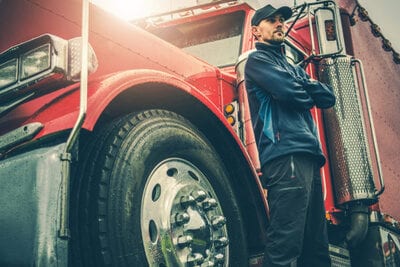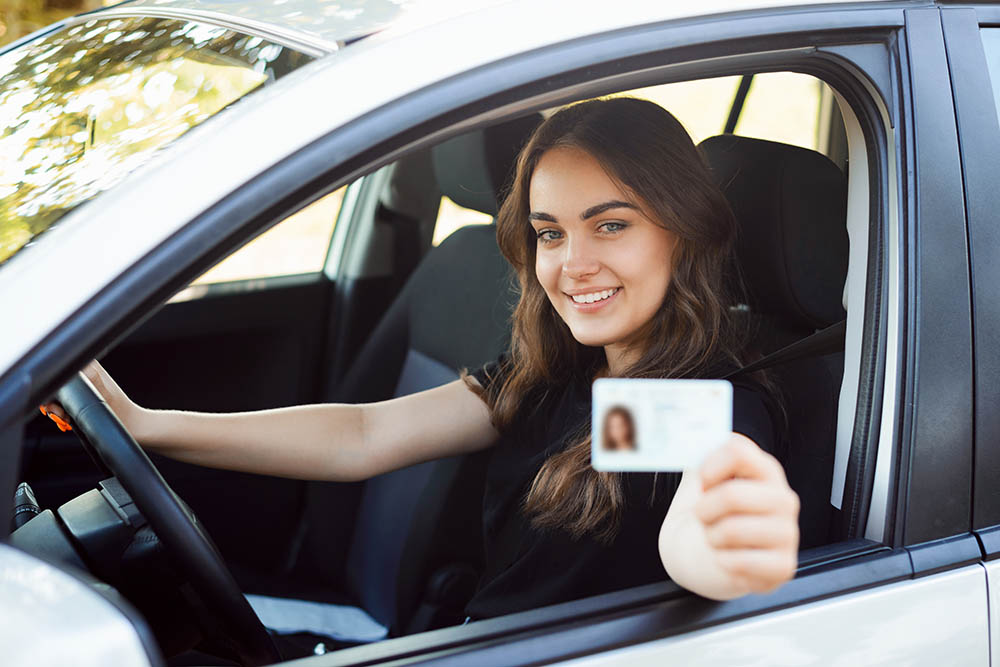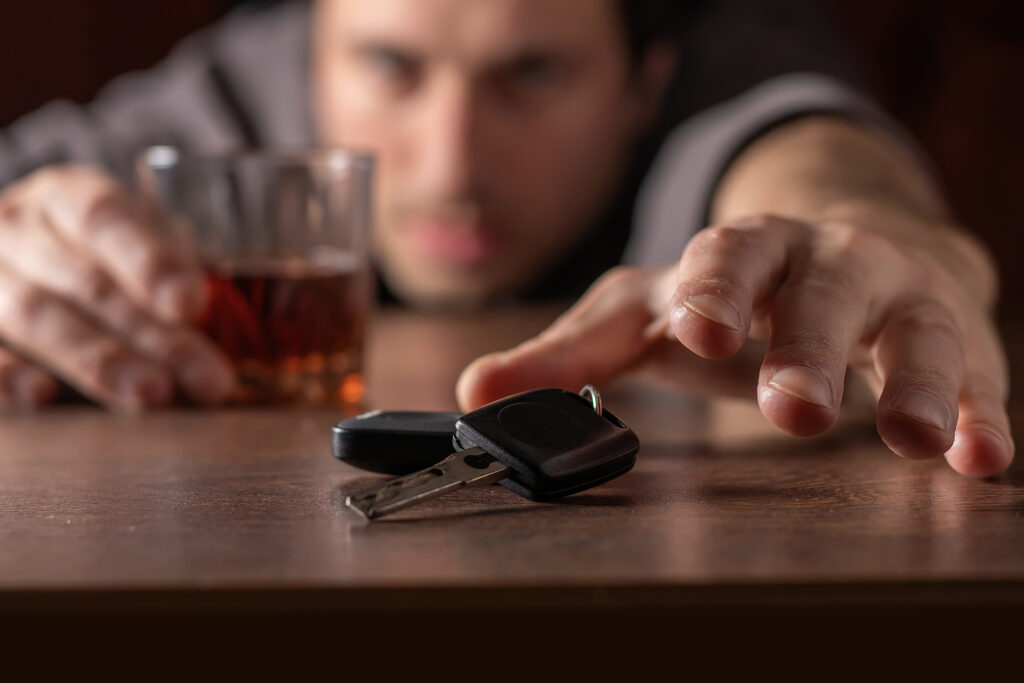Illinois motorists who drive while impaired by drugs and/or alcohol may be arrested and charged with DUI (driving under the influence). If this happens to you in or near Chicago, pick up your phone as soon as possible and schedule a consultation with a Chicago DUI attorney.
How are Illinois DUI laws enforced? Can you be arrested and charged with driving under the influence if you were driving on private property? Where can you be arrested and charged with driving under the influence in Illinois?
Keep reading, and you will learn how Illinois DUI laws are applied to motorists who are driving on private property. You will also learn what measures to take if you’re placed in police custody for DUI, and you will find out when you should contact a Chicago DUI lawyer.
What Constitutes DUI in Illinois?
Under the law in Illinois, you may not operate a motorized vehicle if you have a blood alcohol content (BAC) level measuring at 0.08 percent or higher or if you are driving while under the influence of any drugs and/or alcohol.
Illinois law makes no distinction between impaired driving on the public streets and impaired driving on private property in regards to a DUI charge. If you were driving under the influence on your own property and away from any public roadways, that isn’t a defense against a DUI charge in this state.
However, it is important to understand the two different aspects of a DUI charge in Illinois. One is the DUI charge itself and the other is the subsequent license suspension that accompanies the DUI charge.
While being on private property will not prevent you from being charged with – or convicted of – DUI, it may play in your favor when you are contesting a driver’s license suspension. Learn more about the different aspects of a DUI charge by watching this video.
Where May DUI Laws Be Enforced?
DUI arrests may be made in parking lots at bars, stadiums, arenas, and any other commercial location. DUI arrests may also be made at ranch properties, apartment complexes, golf courses, or anywhere people ride all-terrain vehicles (ATVs), motorcycles, or other vehicles “off-road.”
Operating an ATV or a golf cart doesn’t require a driver’s license, but Illinois law defines golf carts and ATVs as motorized vehicles, and anyone who operates a golf cart or an ATV while impaired by drugs and/or alcohol may be arrested and charged with driving under the influence.
What Are the Penalties for DUI Convictions in Illinois?
If there are no aggravating circumstances, first and second DUI offenses are charged as misdemeanors. A third DUI charge is a felony charge that may be penalized upon conviction with prison, a fine, and a 10-year driver’s license suspension.
A fourth DUI charge is a felony charge punishable on conviction with a lengthy prison term and a lifetime driver’s license suspension. Driving under the influence can also be charged as a felony, even for a first offense, if particular aggravating circumstances were involved, including:
1. operating a school bus while impaired by drugs and/or alcohol
2. causing an accident that results in serious bodily harm while under the influence
3. driving under the influence with a revoked or suspended license
4. driving under the influence with no automobile insurance
Convicted DUI offenders must submit to an alcohol/drug evaluation and submit to treatment if the evaluation indicates a substance abuse issue. Convicted DUI offenders are also required to attend a Victim Impact Panel that focuses on the consequences of DUI-related traffic crashes.
What Are the Defenses Against a DUI Charge?
Unlike some states, you can’t defend yourself against an Illinois DUI charge by proving that you were on private property, in an isolated setting, and that the public had no access to the location. The only defenses you may use are the same defenses that may be used in any DUI case.
Your DUI attorney will develop an effective, aggressive defense strategy designed to bring your case to its best possible outcome. If your case goes to trial, your lawyer may claim:
1. The police didn’t have probable cause to suspect you of driving under the influence.
2. The breathalyzer is unreliable; it was not calibrated and maintained properly.
3. The breathalyzer exam was conducted by a police officer who was not certified or adequately trained to use the device.
When Should You Contact a DUI Defense Attorney?
If you’re charged anywhere in or near the Chicago area with driving under the influence on either private or public property, a Chicago DUI attorney will protect your rights, examine the evidence against you, provide personalized legal advice, and fight for the justice you need.
If you are placed under arrest for DUI, exercise your right to remain silent. You can politely say something like “I would prefer not to answer any questions until my attorney can be present” – and then say no more. Then contact a DUI defense lawyer at the first possible opportunity.
Your attorney’s first step may be seeking to have the charge against you dropped or the case dismissed. If neither of these options are available, and if you are innocent of the charge against you, you should insist on your right to a trial by jury.
Should You Accept a Plea Bargain?
If the evidence against you is conclusive and a conviction for driving under the influence is certain, in some cases, your Chicago DUI lawyer may be able to negotiate an acceptable plea bargain on your behalf – especially if the charge against you is for a first DUI offense.
Don’t even consider acting as your own DUI attorney or negotiating your own plea bargain, and discuss any plea bargain offer thoroughly with your attorney before you accept or reject it.
What Else Should You Know About DUI in Illinois?
You’ve probably heard this advice all of your life, but that’s because it is good advice: Don’t Drink and Drive. Sure, calling Uber or a taxicab will cost a few dollars, but it will be considerably less than the cost of a ride to the jail, the emergency room, or the morgue.
Don’t even consider drinking and driving. Hire a taxi or an Uber, arrange for a designated driver, book a room, or sleep on a friend’s sofa. Yes, it’s inconvenient, but a bigger inconvenience is being arrested, handcuffed, thrown in a police cruiser, and charged with DUI.
Illinois police made over 20,000 DUI arrests in 2020, and more than 250 people lost their lives that year in alcohol-related traffic collisions in this state. Of course, anyone may make a poor judgment, and a driver may be wrongly accused of DUI when in fact that driver is innocent.
This cannot be stressed strongly enough: If you’re taken into custody and charged with driving under the influence in Cook, DuPage, Kane, or Lake County, contact a Chicago DUI defense lawyer immediately for the advice, representation, and legal services you will need.



